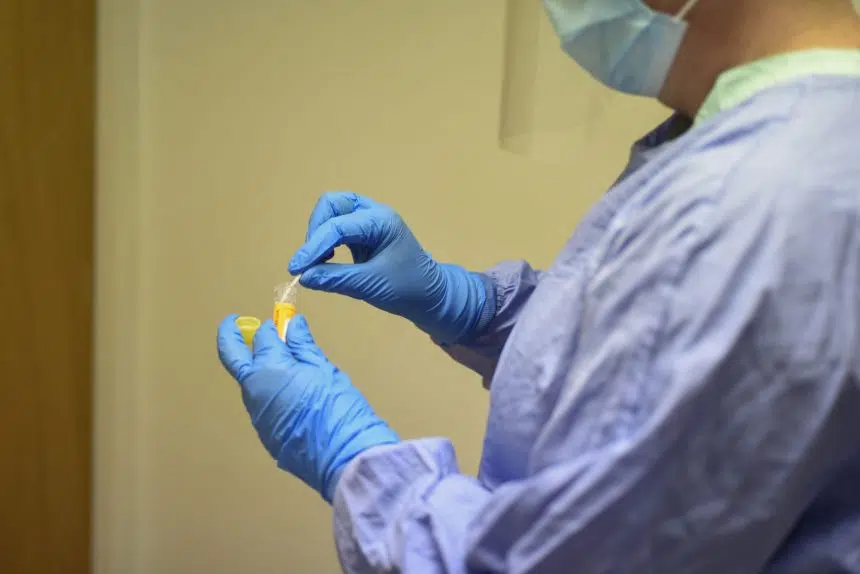The Saskatchewan government will no longer offer PCR tests for the general public and it won’t be reporting daily COVID-19 numbers anymore.
While those moves have drawn criticism from the government’s political opponents, at least one infectious disease expert thinks the changes make sense.
Dr. Joseph Blondeau, a clinical microbiologist at Royal University Hospital in Saskatoon, pointed out that Omicron is much less severe than earlier variants of the virus.
“The reality is that the majority of people that are being infected with Omicron are actually having mild symptoms or no symptoms at all …,” Blondeau told Gormley on Friday.
“We know that this virus has characteristics which make it look a little bit more like seasonal respiratory viruses. At least in my interpretation of the data, that’s how it’s being borne out in the population.”
He went on to say that contact tracing, where public health officials track down close contacts of people who test positive, isn’t useful anymore given the rapid spread and mild symptoms of Omicron.
“It’s almost impossible now to do contact tracing because there’s some data that shows that 27 to 40 per cent of people may be asymptomatic but still infected with Omicron. So the virus is spreading without us knowing it. We don’t know who these individuals are, so then how do you do contact tracing?” Blondeau said.
The lack of testing for the general population and no more daily reporting of COVID numbers has drawn criticism from some who like to keep an eye on the numbers. Blondeau said it’s a transition that needed to be made.
“Those people who are data junkies, who have been following this sort of religiously for the past couple of years, are just going to have to transition along with the transition that’s occurring in regards to how this data is going to be collected and shared, and just learn to adapt to it as well,” he said.
“At the end of the day, my thought is that it would be very, very nice that we didn’t have to talk about this virus anymore.”
He went on to describe what he believes COVID management may be like as the new system is implemented and restrictions are dropped.
“There’s chatter that, ‘Is now COVID becoming endemic as opposed to pandemic?’ If that’s the case, we may start to see this be part of our seasonal immunization program. When you’re showing up to get your flu shot, you might be getting a COVID shot at the same time,” he said.
Blondeau also pointed out the virus is still around, and people should be aware of that.
“It’s still going to be up to individuals to do what it is they feel most comfortable doing. So if you’re still a little bit nervous and you’re in a situation where there are people that you don’t know, then distancing and still wearing a mask is still an option that you have. Staying at home when you’re symptomatic is still going to be an important component,” he said.
“Just because things appear to be changing based on the trends and the data doesn’t necessarily mean that by tomorrow we can all stop doing the things that have been so helpful to us over the last couple of years. I think we’re going to need a slow transition with that as well.”







